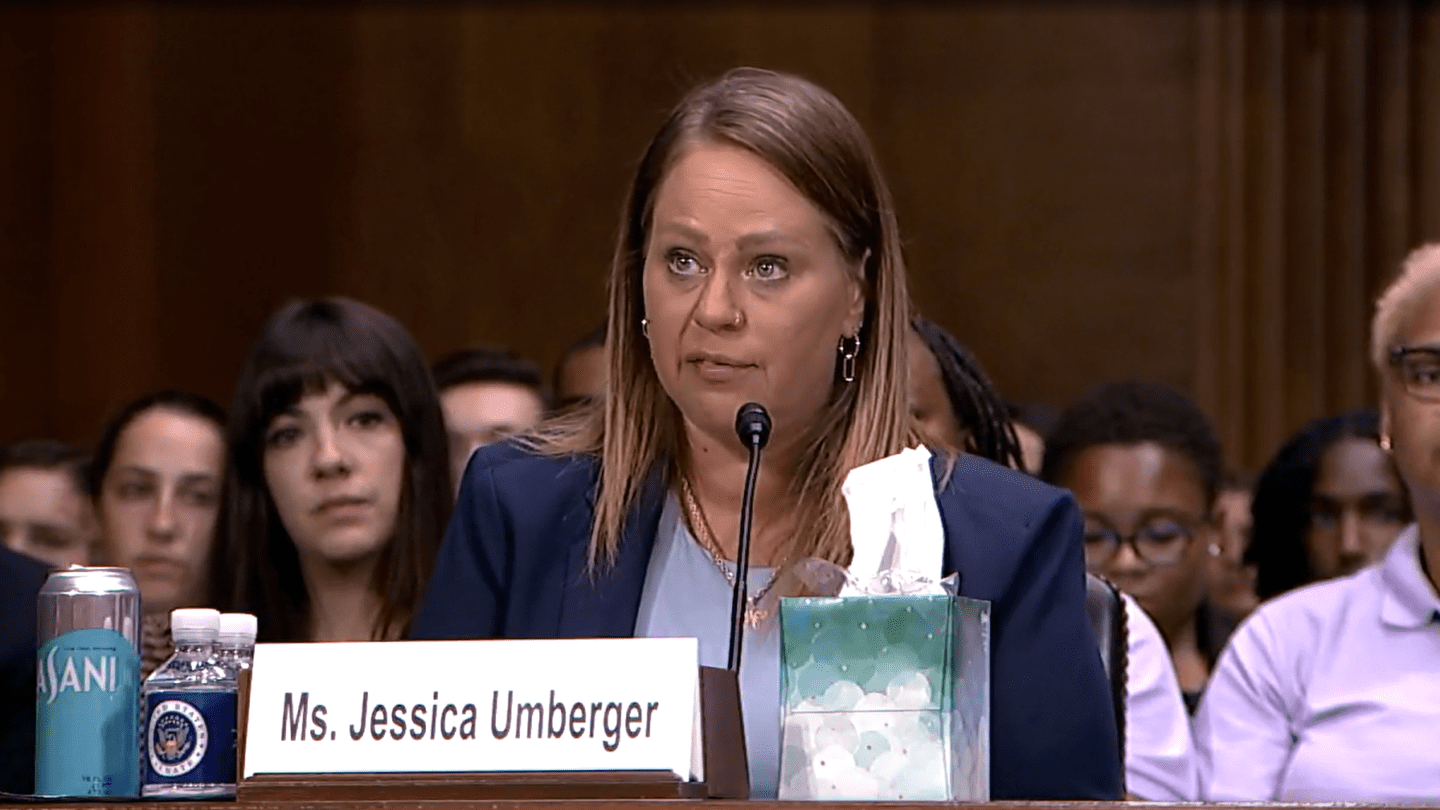A Georgia woman came forward about the lack of medical care she received while giving birth in prison at a Wednesday hearing held by the U.S. Senate Judiciary Subcommittee on Human Rights and the Law.
Jessica Umberger, who now serves as a care navigator for the Policing Alternatives & Diversion Initiative in Atlanta, said she was serving a five-year prison sentence at the Helms Facility in Atlanta when she gave birth to her daughter, Jordan, in August 2018.
Umberger, however, claims she was told she would not have a say in how she gave birth.
“I was told by prison staff that because I had a C-section 18 years prior, it was Georgia Department of Corrections’ policy that I had to have another one,” Umberger said. “Even though I told them I wanted to have a vaginal birth, they told me it was not allowed.”
Umberger said she ended up with preeclampsia and had to be rushed to a hospital, which is where she was given just two hours to hold and look at her baby’s face before she was taken to a dark basement and made to wash her body while a male sergeant watched. She said she still remember his eyes.
“The next few days I remember random men looking every hour into that small window of the locked door,” Umberger said. “I remember seeing feet of people walking by my caged window and thinking, ‘If people only knew what was happening down here. What would they say? Or, would they even care?’”
Three days later, Umberger said she was transported to Lee Arrendale State Prison in Habersham County and placed in solitary confinement, where her C-section wound became infected.
“I was not given my property and therefore could not shower properly,” Umberger said. “I had been wearing the same underwear from the day I gave birth and did not have a change of underwear. When I would ask for pads, I was given one, maybe two if I was lucky.”
Umberger also claims no one checked on her mental health. She was never screened for postpartum depression, and she was billed for a medical procedure that she did not want.
The Senate subcommittee’s investigation into the treatment of pregnant women behind bars has reportedly uncovered more than 200 human rights abuses.
Democratic Senator Jon Ossoff of Georgia, who chairs the subcommittee, said Umberger’s experience highlights what he calls the “significant and pervasive” abuse that women are being subjected to behind bars.
“This abuse is happening as we speak right now in prisons and jails across the country — the abuse of incarcerated pregnant women — and that means it’s also abuse of their babies,” Ossoff told WABE on Thursday.
There are currently no national statistics on how many pregnant people are behind bars or what happens to those pregnancies.
That could soon change.
Over the last couple of years, Ossoff has led other investigations into the conditions in prisons and jails across the country that have uncovered nearly 1,000 uncounted deaths, widespread sexual abuse of women and corruption at the Federal Penitentiary in Atlanta.
That’s led to President Joe Biden recently signing the Federal Prison Oversight Act into law to bring greater transparency and accountability to the country’s federal prisons.
But Ossoff said that when it comes to the abuse of pregnant women in prisons and jails, it has to be treated as more than “just an ordinary public policy issue.”
“I think what’s becoming clear is that Georgia’s state government is negligently failing to protect the human rights of Georgia residents,” Ossoff said. “Whether it’s the pervasive violence and criminality in our prison system, the abuse of pregnant women in our prison system, the mistreatment of children in foster care, including what appear to be widespread victimization of those children by human traffickers, it’s a level of negligence and incompetence that shocks the conscience.”
The subcommittee launched its latest investigation in February. It remains active and ongoing.
“I just want to emphasize, this is no ordinary issue,” Ossoff said. “We’re talking about the medical neglect, the malnourishment, the physical abuse of pregnant women and their babies in American prisons and jails ongoing across the country, as we speak. It’s unconscionable. You know, the United States goes around the world lecturing other nations on human rights. These are gross human rights abuses happening right now in our country, paid for with public resources, and it has to be investigated, exposed and stopped.”









